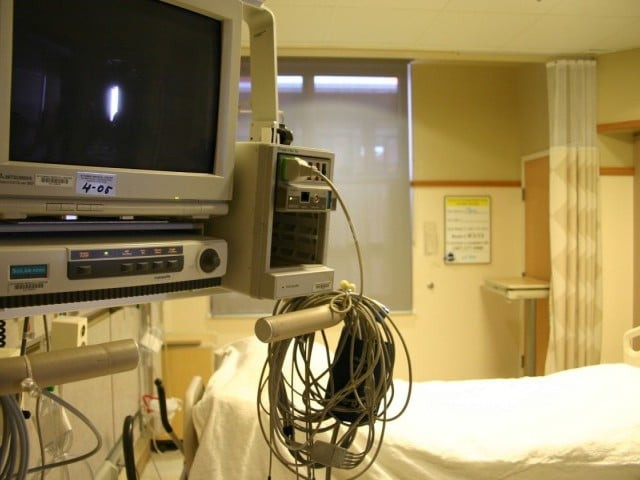Health diary: The curious case of doctors strikes
Medics are accused of operating private clinics while boycotting OPDs.

Medics are accused of operating private clinics while boycotting OPDs. PHOTO: FILE
Besides being comparatively well-equipped and adequately staffed, there are two other commonalities shared by the three: all three are situated in the provincial capital and all three comprise medics and paramedics who firmly believe in the concept of collective bargaining.
First strike
The lone and distant voices have now been powered up by different political parties and trade unions that launch strikes whenever a medic smells trouble at any of the aforementioned hospitals. The action has a ripple effect across the city and it is the patients who are left to face the worse. Bringing operations to a halt is the only solution doctors apply for negotiating with the government.

These strikes are mostly carried out in out-patient departments (OPD) where the underprivileged seek regular medical assistance free of cost. Not many can afford check-ups at private health facilities or doctor’s clinics due to obvious financial constraints.
The contradiction is simple on the surface. All day long, doctors uphold their democratic right of refusing to work until their demands are met and in the evening, are found busy at their private clinics.
Even during times when doctors were being kidnapped, private clinics are never closed. Strikes are only meant for hospitals. The clinics are the actual sources of hard cash.
“Among 70,000 people, there is only one doctor. They belong to the most respected section of the society. If they resort to such cruelties, what can be said of the rest,” said a senior doctor in Peshawar. He added the same patient who was refused to be seen at the state-run hospital’s OPD in the morning is willingly examined by doctors at their private clinics in the evening.
Pressure spot
When approached for a comment, Provincial Doctors Association Chairman Dr Shah Sawar said the medical fraternity doesn’t go on strike by choice.
“We are compelled to do so because protests and press conferences bear little fruit,” he told The Express Tribune. Sawar defended the practice in private clinics and said, “We run clinics at the cost of our social and family lives. That too is a service,” he said, adding that pressing the government is vital for highlighting their plight and pushing for a solution. The PDA chairman maintained the trade union culture should change and it can only happen if the government resolves issues before the community is forced to halt operations at hospitals.
Social perspective?
Shakeel Khan was accompanying his father at the LRH cardiology department. He told The Express Tribune said he was present at the time when relatives of an injured person misbehaved with staffers at the LRH accident and emergency department on June 25.
“They were furious and that was expected because the young man died in front of their eyes supposedly due to the negligence of doctors,” he said.
LRH medics went on strike following the incident, adding to the woes of visiting patients.
“To be honest the doctors’ community has lost its respect. Why don’t they go for a hunger strike rather than boycotting services?”
Published in The Express Tribune, July 13th, 2015.













COMMENTS
Comments are moderated and generally will be posted if they are on-topic and not abusive.
For more information, please see our Comments FAQ